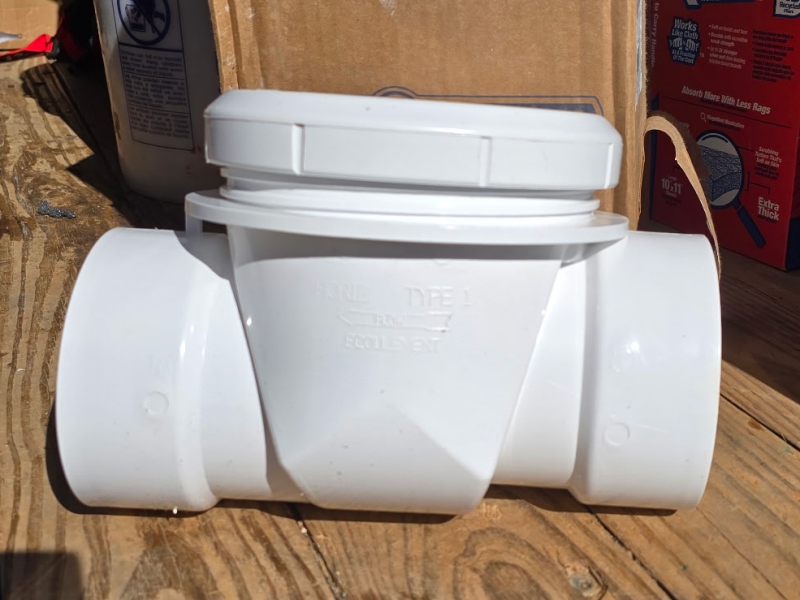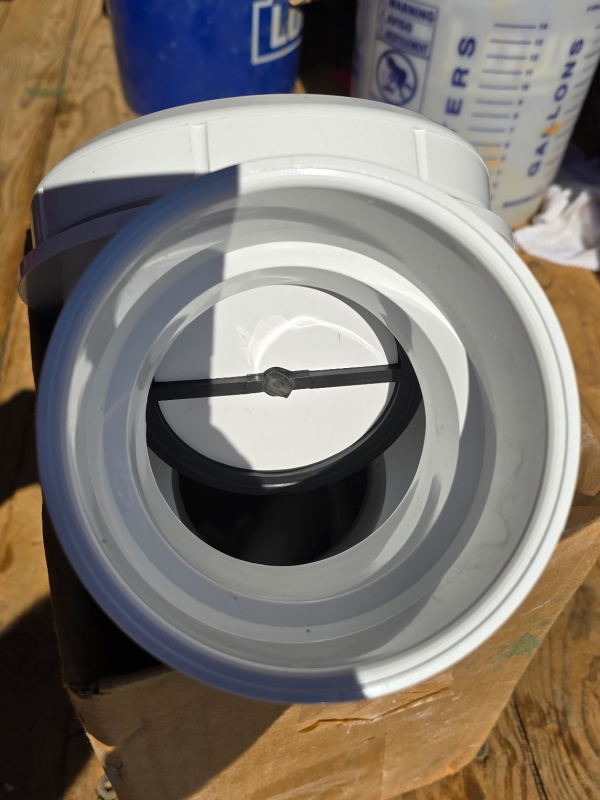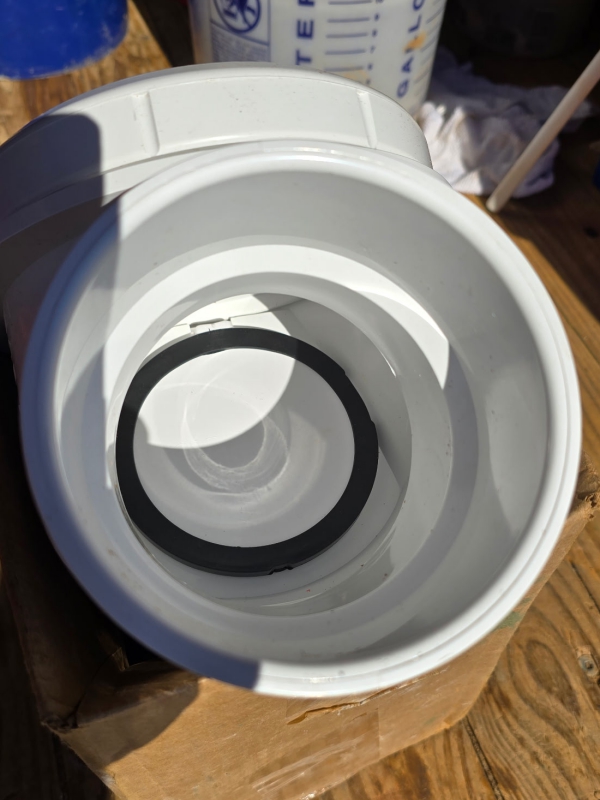CASE STUDY:
Backwater Valve Maintenance
How One Charlotte Homeowner Avoided a $40,000 Mistake
Few homeowners understand everything about their home, so when things break, they turn to experts. When his toilet stopped flushing correctly, Chandler called a plumber.
Chandler had been using the same large, corporate plumbing company for a year since moving to Charlotte. He'd chosen them after seeing their billboards and hearing their radio jingles around town. They fixed the issue, but when the problem returned, their diagnosis was drastically different. The technician explained that Chandler's sewer lines were poorly pitched and flowing in the wrong direction—they claimed he would have to have a large portion of the inside of his home jackhammered up and a large portion of his yard excavated to repipe everything for $40,000.
Faced with that estimate, Chandler turned to the Charlotte subreddit on Reddit for advice. Multiple users recommended Pathmaker Plumbing, praising owner John Stokes for his honest assessments and educational approach, so Chandler called for a second opinion.
A Different Perspective
When John Stokes arrived at Chandler's Mint Hill home, his diagnostic process told a completely different story. Using a camera inspection to check for blockages, John found no major "bellies" or structural problems in the sewer lines. The pipes were very close to perfect.
"John walked me through everything," Chandler recalls. "He explained things to me as a consumer and even discussed the tactics used by some larger companies. I really appreciated his honesty and thoroughness."
The real issue wasn't a $40,000 sewer replacement. Instead, John discovered that Chandler had a backwater valve that simply needed cleaning and proper maintenance. Chandler didn't even know this valve existed in his system.
After a thorough cleaning and showing Chandler how to maintain the valve properly, the toilet problems disappeared.
Understanding Your Backwater Valve
Chandler isn’t unique; most homeowners don’t know critical details about their home’s plumbing system.
Not every home has a backwater valve, but they're commonly found in homes with basement fixtures and required by code in areas where the city’s sewer main is elevated above ground level of the home it serves. Many homeowners, like Chandler, don't even know they exist until a plumber points them out.

What is a Backwater Valve?
A backwater valve is a one-way valve installed in your home's main sewer line, typically in the basement or crawl space. Its primary function is to prevent sewage from flowing backward into your home during sewer system overloads or blockages. If pressure builds up in the main sewer line—due to heavy rains, system backups, or blockages—the valve automatically closes to prevent sewage from backing up into your home.


How Backwater Valves Work
The mechanism is elegantly simple. The valve contains a flapper or ball that allows flow in only one direction. Under normal conditions, gravity and water flow keep the valve open, allowing waste to exit your home. When reverse pressure occurs, the flapper closes against its seat, creating a watertight seal.
Many backwater valves also include a manual override feature, allowing homeowners to close the valve manually if needed. Some newer models include alarms that alert you when the valve closes, indicating a potential sewer backup situation.
Proper Backwater Valves Maintenance
Backwater valves require regular maintenance to function properly. Neglecting this maintenance can lead to valve failure and the very problems they're designed to prevent.
Regular Inspection: Check your backwater valve every six months. Look for debris, sediment buildup, or signs of damage around the valve housing.
Cleaning: Remove any debris that might prevent the valve from closing properly. Grease and sediment commonly accumulate around the valve mechanism and any kind of wipes, “flushable” or not can impede their performance.
Testing: Manually operate the valve if it includes a test feature. The flapper should move freely and create a tight seal when closed.
Professional Service: Have a qualified plumber inspect and service your backwater valve annually, especially if you've experienced any backup issues.
Do You Need A Backwater Valves?
Not every home requires a backwater valve, but they're particularly important in certain situations:
Basement fixtures: Homes with bathrooms, laundry rooms, or floor drains below the main sewer line level face a higher risk of backups. The backwater valve protects these lower-level areas.
Flood-prone areas: Properties in areas susceptible to heavy rainfall or flooding benefit significantly from backwater valve protection.
Older neighborhoods: Areas with aging municipal sewer systems experience more frequent backups, making backwater valves valuable insurance.
Combined sewer systems: Some municipalities utilize combined systems that handle both sewage and stormwater, thereby increasing the risk of backups during heavy rainfall.
Warning Signs Your Backwater Valve Needs Attention
Several symptoms indicate your backwater valve may need cleaning or repair:
Sewage odors near the valve location
Water backing up in basement floor drains
Gurgling sounds from lower-level drains
Visible debris or standing water around the valve
Recurring toilet flushing problems
The Power of A Second Opinion
Today, Chandler's toilet flushes perfectly, and he understands how to maintain his backwater valve properly. More importantly, he learned that getting a second opinion on major plumbing work isn't just smart—it's essential.
"I'm grateful I took the time to research and get another perspective," Chandler reflects. "John didn't just fix my problem; he taught me how to prevent it from happening again."
For homeowners facing expensive plumbing diagnoses, Chandler's experience offers a clear message: understand your systems, ask questions, and always consider a second professional opinion. Sometimes, the difference is simply working with someone who prioritizes your understanding over their profit margins.
Facing a major plumbing diagnosis? Contact Pathmaker Plumbing at (704) 733-7507 for an honest second opinion and educational service that puts your best interests first.

Trusted Charlotte Plumbers
Quick Links
Our Services
Our Locations
Copyright © 2025 Pathmaker Plumbing Terms & Conditions Privacy Policy